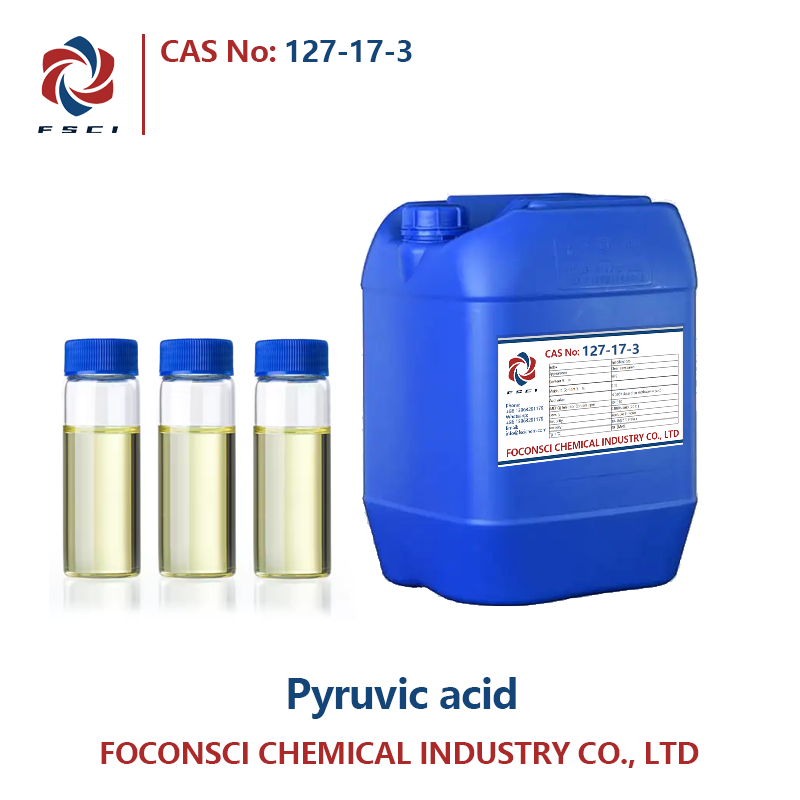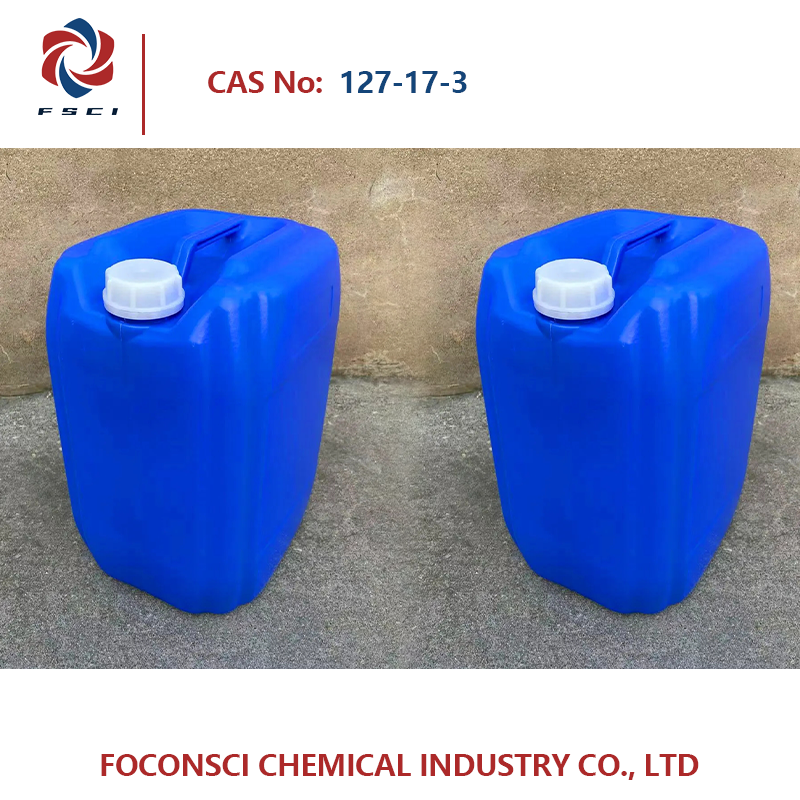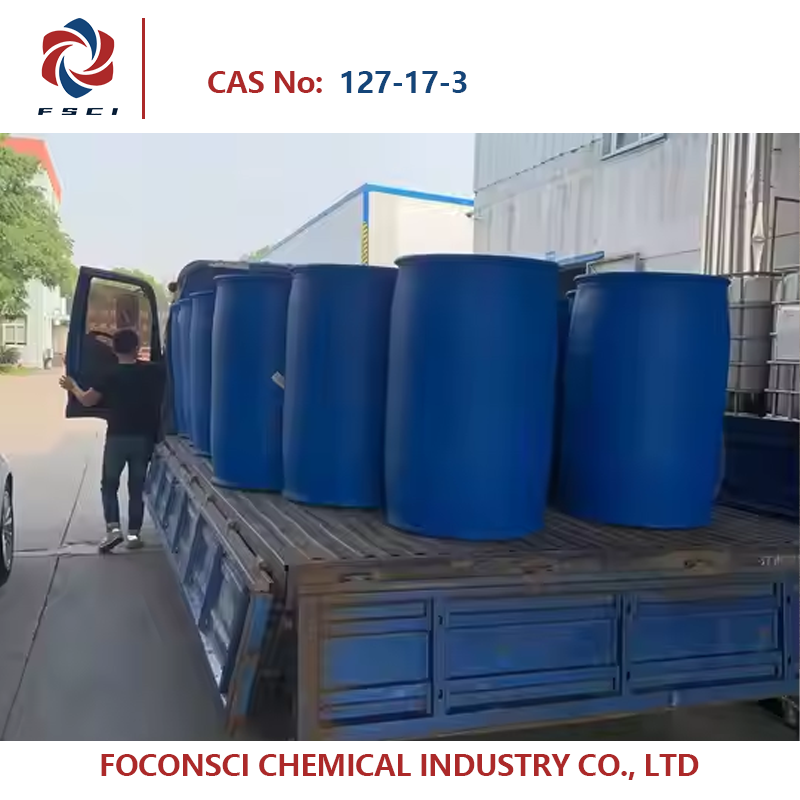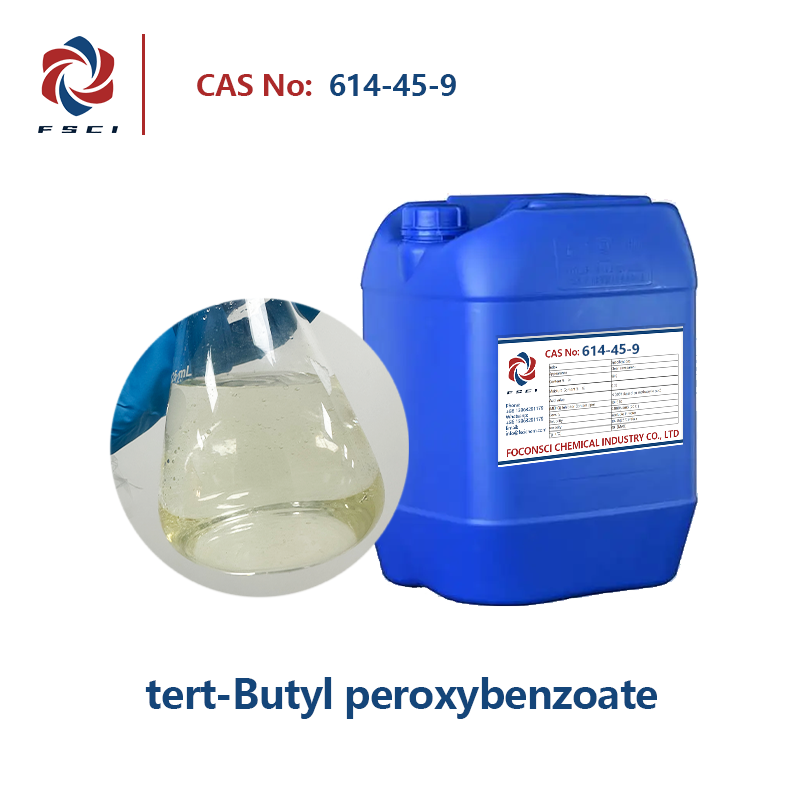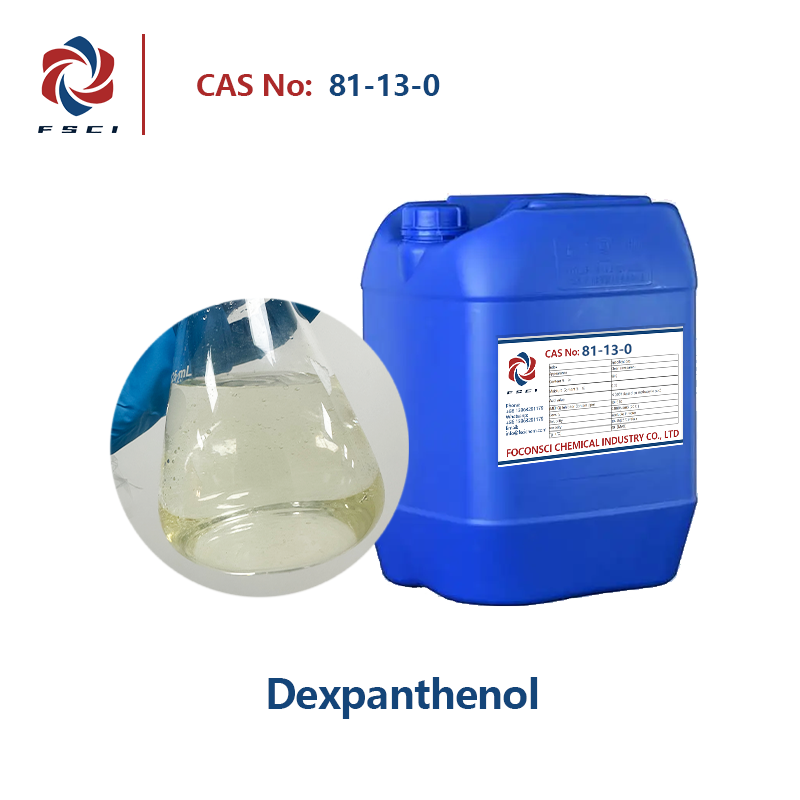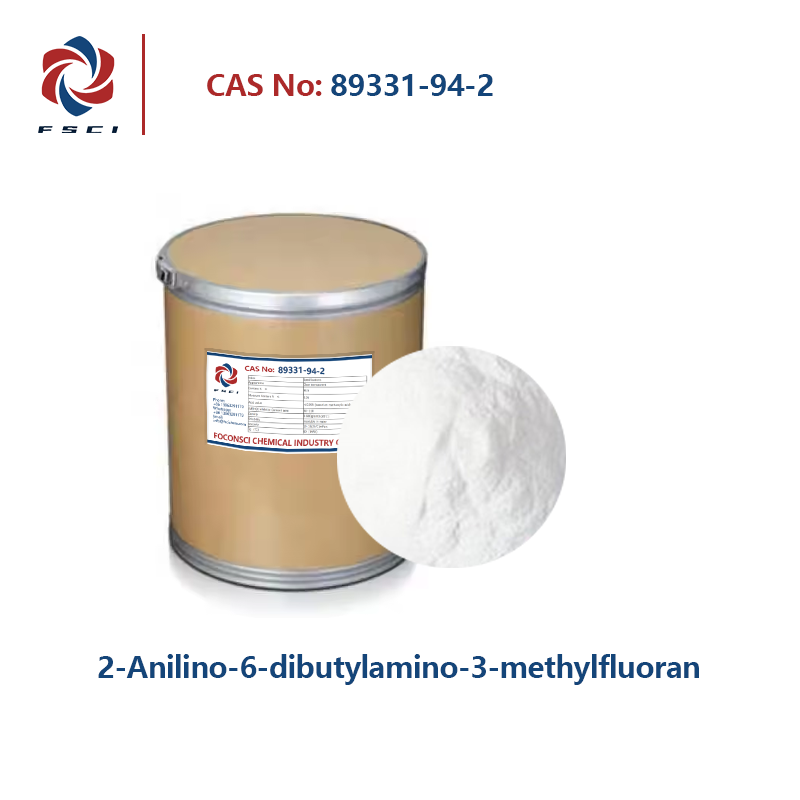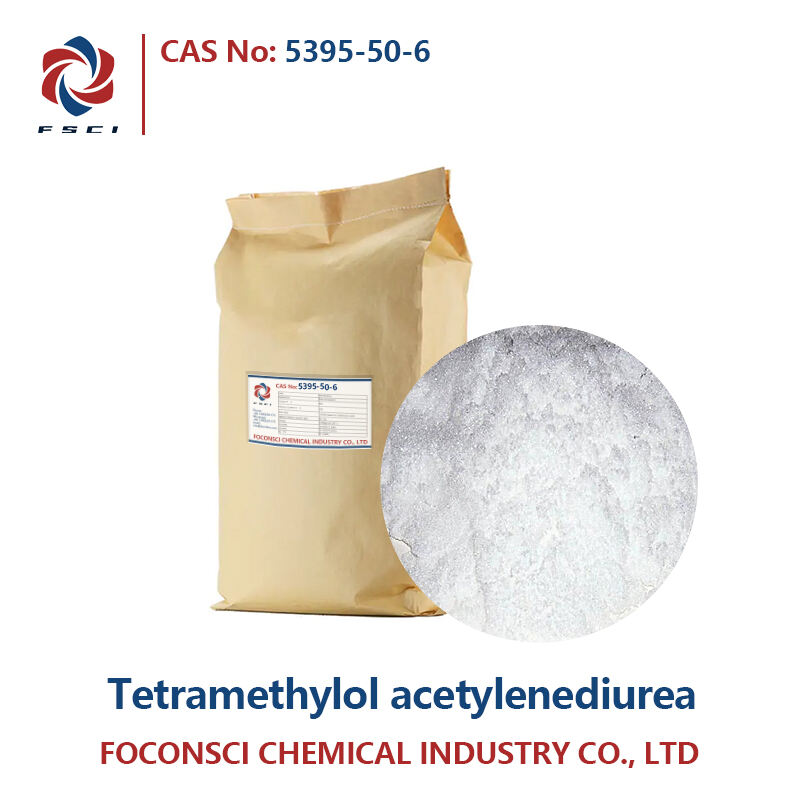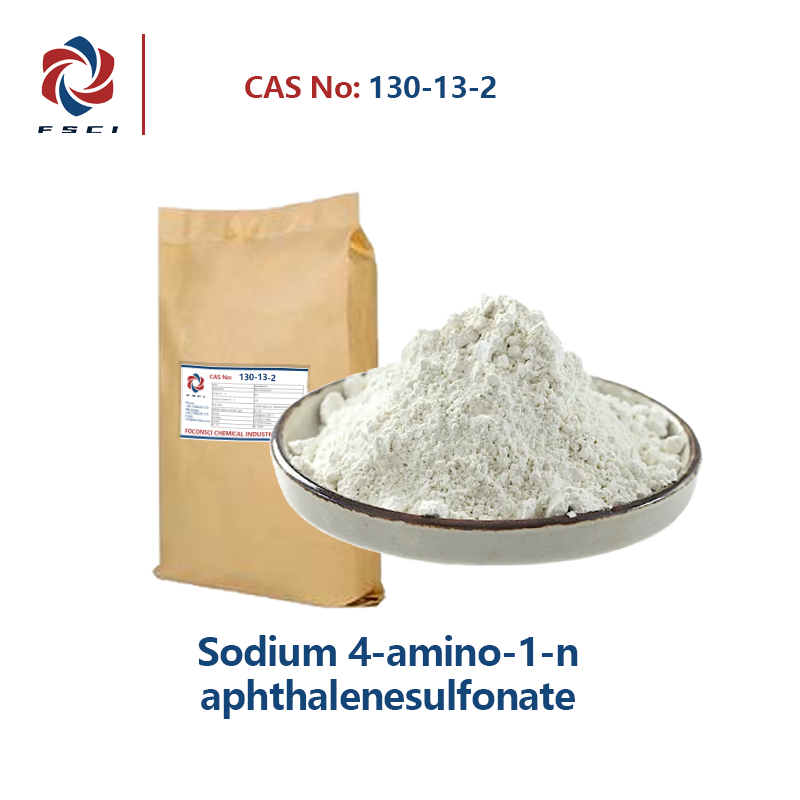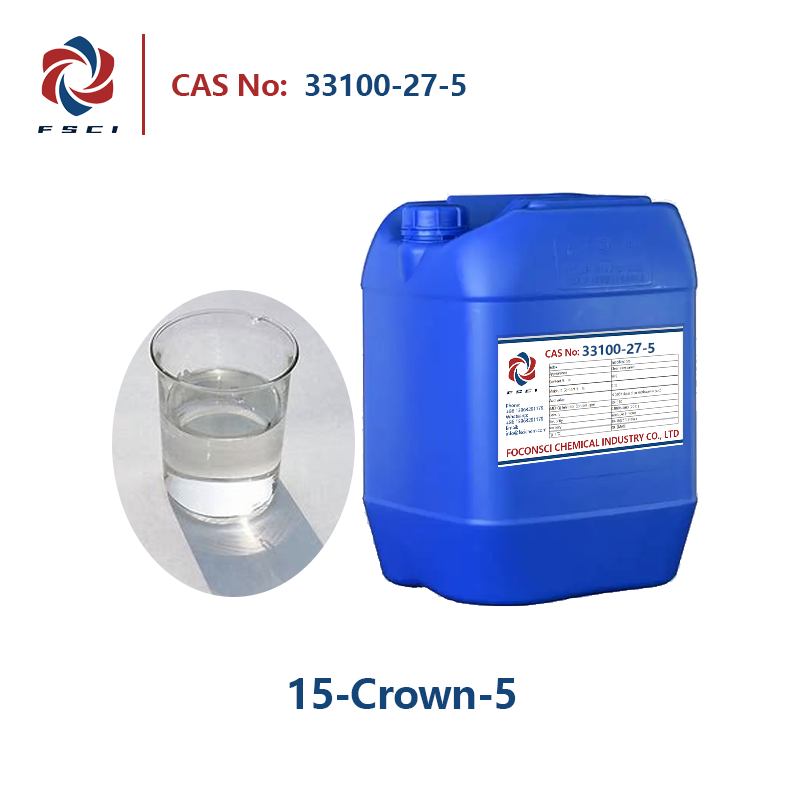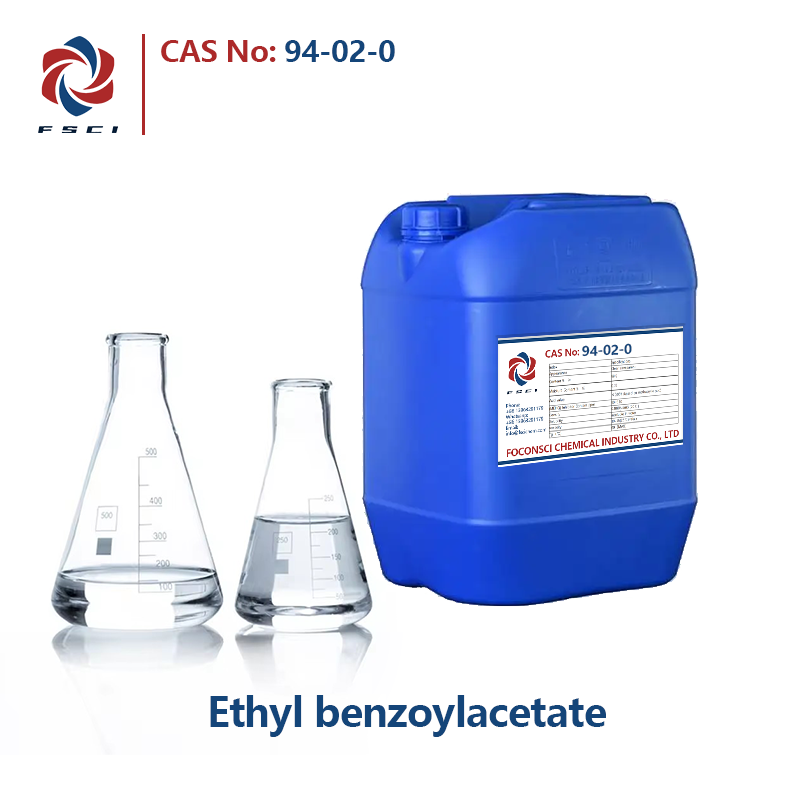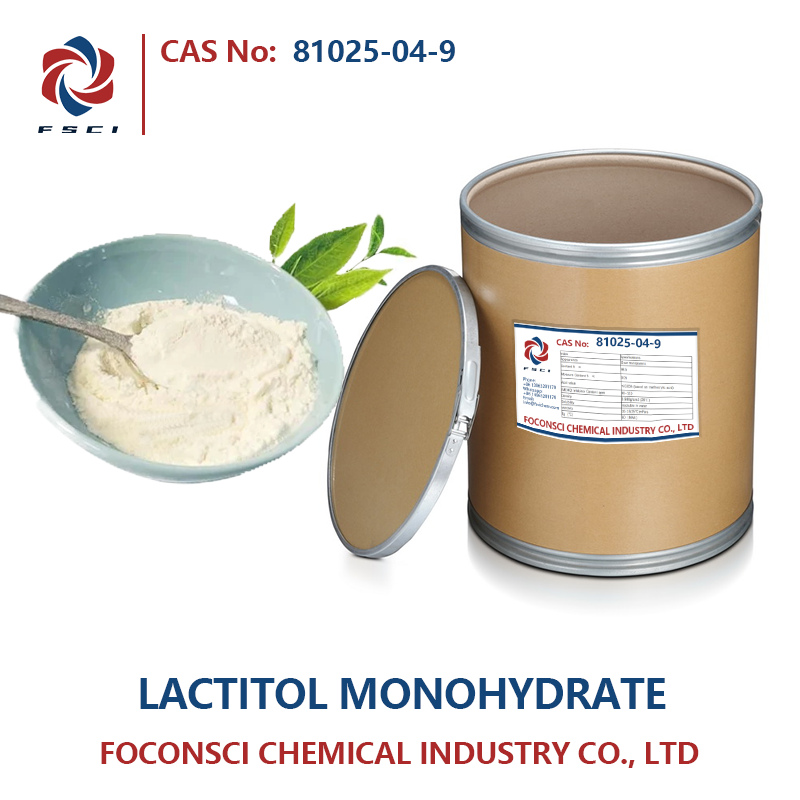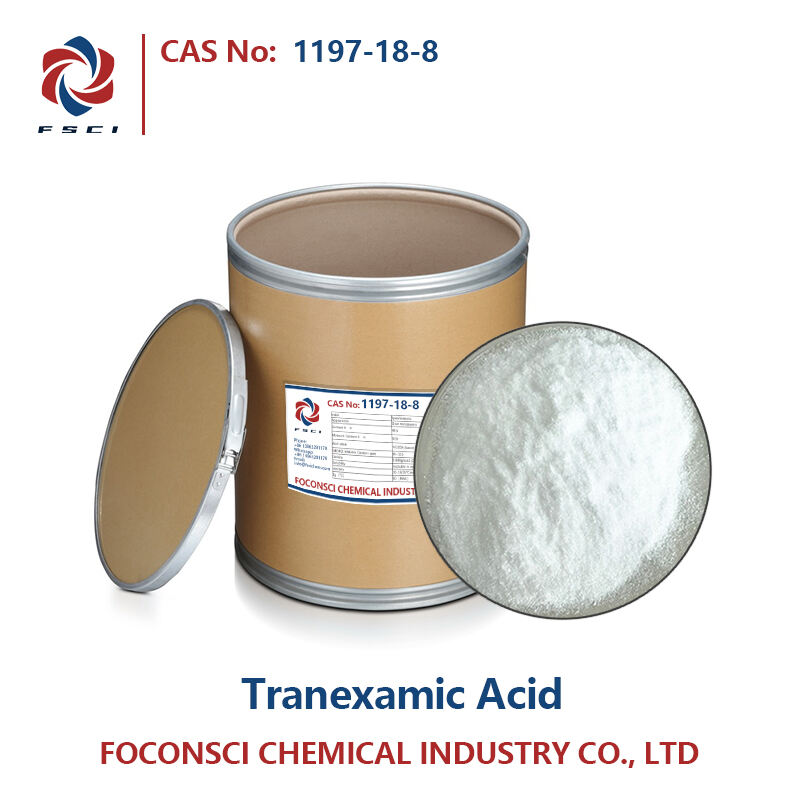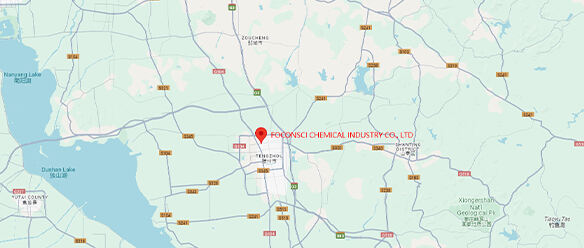Pyruvic acid CAS 127-17-3
Chemical name: Pyruvic acid
Synonymous names:PyruvicAcidForSynthesis;pyruvic;
ACID PYRUVATE
CAS No:127-17-3
Molecular formula:C3H4O3
Molecular weight:88.06
EINECS No:204-824-3
- Parameter
- Related products
- Inquiry
Structural formula:

Product Description:
|
Items |
Standard |
Specifications |
|
Shape& Properties |
Slightly yellow liquid |
Slightly yellow liquid |
|
Water |
≤1.5% |
1. 1% |
|
Acetic Acid |
≤1.0% |
0.86% |
|
Heavy metals |
≤10ppm |
conforms |
|
Chloride |
≤100ppm |
conforms |
|
Sulfate |
≤400ppm |
conforms |
|
Arsenic |
≤1ppm |
conforms |
|
Relative density |
1.240~ 1.260 |
1.246 |
|
Content Assay |
≥98.5% |
99.6% |
|
Purity(Titration) |
≥93.0% |
98.2% |
|
Conclusion |
All results conform to the enterprise standard |
|
Properties and Usage:
Pyruvate is an organic acid with good water solubility and biocompatibility. It is often used in biochemical research, medicine, cosmetics, food additives, industry and agriculture.
1. Biochemical research
Metabolism research: Pyruvate is a key intermediate in glycolysis and is involved in the process of converting glucose into energy. It is converted to acetyl-CoA by pyruvate dehydrogenase and enters the tricarboxylic acid cycle (TCA cycle) to further generate ATP. This process is essential for cellular energy production, making pyruvate a core tool for studying metabolic pathways and cellular energy metabolism.
2. Medical field
Drug development: Pyruvate and its derivatives are used as basic compounds or intermediates in drug synthesis, especially for the development of metabolic regulation drugs and anticancer drugs.
Health applications: Studies have shown that pyruvate may have potential application value in anti-aging, improving athletic performance and enhancing cardiovascular function, although these areas are still in the research stage.
3. Cosmetics and skin care products
As an exfoliating and skin-lightening ingredient, pyruvic acid can promote the renewal of skin cells and help remove dead skin cells, thereby improving uneven skin tone and brightening the skin.
4. Food industry
Preservatives: Pyruvic acid has antibacterial properties and can effectively inhibit the growth of microorganisms in food and extend the shelf life.
Acidulant: As an acidity regulator, pyruvic acid can enhance the flavor of food and improve the taste.
5. Chemical industry
Pyruvic acid is an important synthetic intermediate in the chemical industry and is used to synthesize various chemicals and pharmaceutical intermediates. For example, it is a key raw material for the production of acetone and other organic compounds. In addition, pyruvic acid is also used as a solvent or reaction medium in certain industrial processes.
6. Agricultural applications
Plant growth promoter: In agricultural research, pyruvic acid has been explored for increasing crop yields and promoting plant growth, but its specific application is still under further study.
Storage conditions: Seal and store in a dark and cold place. Avoid moisture and sunlight, do not mix with alkalis or substances with oxidizing properties; do not break during transportation and storage.
Packing: This product is packed in 25kg cardboard drums, and it can also be customized according to customers' requirements


 EN
EN
 AR
AR
 BG
BG
 HR
HR
 CS
CS
 DA
DA
 NL
NL
 FI
FI
 FR
FR
 DE
DE
 EL
EL
 HI
HI
 IT
IT
 JA
JA
 KO
KO
 NO
NO
 PL
PL
 PT
PT
 RO
RO
 RU
RU
 ES
ES
 SV
SV
 TL
TL
 IW
IW
 ID
ID
 LV
LV
 LT
LT
 SR
SR
 SK
SK
 VI
VI
 HU
HU
 TH
TH
 TR
TR
 GA
GA
 CY
CY
 KA
KA
 LA
LA
 MN
MN
 KK
KK
 LB
LB

